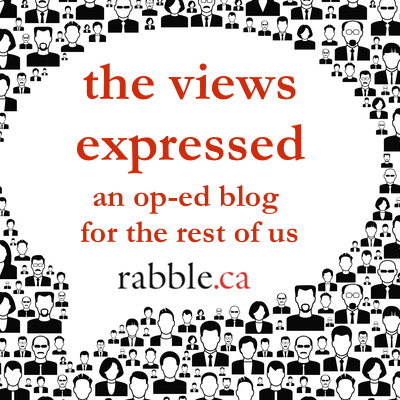In a recent opinion-rant published by the Toronto Sun, Christina Blizzard attacked unions for their endorsement of candidates in elections.
It’s no secret that unions have taken a public stance regarding whom they support in elections — but hasn’t everyone?
Over the past couple weeks, the Toronto Star, the Toronto Sun, The Globe and Mail and other news entities publicized their own candidate endorsements for the now completed Toronto Municipal Election.
In her article, Public Sector Unions Should Butt Out of Elections, Blizzard states that there is a conflict of interest for unions that endorse candidates in elections. She states that unions only endorse the candidates whose agenda will best benefit their members.
Firstly, no matter what — it’s in a union’s interest to support the candidate who will provide the best end result for their members.
Secondly, I find her argument highly hypocritical.
The real question is: why is it so acceptable for media entities to endorse candidates? Media publications are controlled by Big Business conglomerates that, quite certainly, have their own means-to-an-end agenda: profit.
Surely, it would be just as much of a conflict of interest for a media publication to endorse a candidate as it would be for a union.
Most news publications are seen as highly credible sources of information and the public regards them as such; publications, in addition to television and radio outlets, have a lot of power in terms of swaying opinion. Endorsing or attacking a candidate in an article or on a broadcast program could thus be seen as a hidden form of advertising — in which case, are they not just as guilty as those large union (and apparently, “greedy”) entities they speak of?
It’s a journalist’s duty to be transparent — to report based on fact and with integrity. It’s clearly a conflict of interest to endorse a candidate merely because it’s the ambition of the presiding conglomerate organization to support a specific political viewpoint. There has been noted concern of this occurring.
In Mass Media and the Transformation of American Politics, author Kristine A. Oswald states the following:
“… the business interests of a media conglomerate often dictate its news coverage… In effect, broadcasters sell audiences to advertisers… This, in turn, forces editorial decisions to be based upon making a profit, rather than informing the public. Access to the media is essential to effectively communicate a political belief… However, the present state of mass media, consisting of a few large monopolies, makes it nearly impossible for unpopular views to be heard in the marketplace. “
A prime example of this was documented from happenings in the 2006 provincial election. With the blessings of media conglomerate CanWest, one senior editor at Global Television even ran in the 2006 election as a Conservative candidate in Toronto. The heirs of CanWest — the Asper family — grew uncomfortably close to the party, even managing to somehow bypass Canadian foreign ownership limits.
Author Marc Edge notes this in his article Aspers and Harper, A Toried Love published by The Tyee in 2007:
“Parliament Hill reporters for CanWest News proved more co-operative than most with the media management tactics of the new Tory government. Then, in early 2007, CanWest expanded its communication empire by another quantum leap amid protests over increased ownership concentration. The acquisition also flouted Canada’s foreign ownership limits, which the Aspers had long opposed.
A revelation made during the 2004 election campaign should have set off alarm bells that a political sea change was under way with a new generation of Aspers. CanWest’s corporate helicopter had been used to ferry a harried Harper above Toronto traffic on his way to an appearance in Hamilton. As Toronto Star media columnist Antonia Zerbisias noted, the favor was business as usual for broadcasters. Both CanWest and CTV contributed generously to the campaign funds of both the Liberal and Conservative parties, she pointed out. ‘Perhaps it’s not so surprising that some very controversial media issues are not being discussed during this campaign.'”
And — might I note — this is the real reason unions feel the need to take a stance in elections. Who can really rely on the corroded, one-sided view presented by the media?
If unions are to achieve any sort of progress or benefit for their members and/or hard-working Canadians at all, they have to speak out. Holding their tongue would mean an unfair imbalance of media saturation — where the real issues are hidden. There should be more than one viewpoint presented for electors to make an informed decision about the future of their city, their province or their country.
Blizzard additionally notes that unions have endorsed candidates that will assist in reinforcing their “greedy” agendas. Unions are often seen as greedy organizations whose sole concern is attaining higher wages and additional benefits for their members.
However, this couldn’t be further from the truth. A lot of stories, which (not surprisingly) aren’t published in the media, speak largely of unions giving back to the community — making donations to important causes, volunteering their time and providing beneficial services to the public free of charge.
Taking into account each of these points made, unions should not be attacked for taking a stance during an election. The real danger lies in the agenda of the media itself.
As a credible publisher/broadcaster, the media has a duty to present the truth. However, more often than not, the media is seen presenting angles that will benefit its existence, rather than serving as a reliable information hub for the public.
As media conglomerates continue to possess and gain power, its imperative — more than ever — that everyone gets involved in political conversation that will affect their future.
No one, especially not the media, should be able to dictate the policies surrounding democracy.
Elisha Allensen is Chief Editor at union marketing firm, Canadian Union Promotions. A labour activist, she has worked to develop innovative campaigns for unions since 2011.



